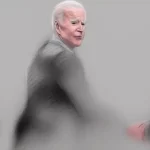This May Also Grab Your Attention:
The teaching of Critical Race Theory (CRT) in K-12 classrooms has sparked a heated discussion over the past few years. On one side, there are those who argue that CRT is a necessary tool for understanding and addressing systemic racism, while on the other side, critics believe that it is divisive and damaging to students’ learning.
Proponents of CRT argue that it is essential for students to understand how race and racism intersect with law, politics, and society. It can allow students to gain a better understanding of social justice issues and help them become more inclusive of marginalized groups. It highlights the systemic aspects of racism that are often ignored in traditional curricula and provides a lens through which history and current events can be analyzed.
Critics, on the other hand, believe that teaching CRT amounts to indoctrination. They argue that it creates division and promotes resentment between different races. They also worry that it encourages children to view certain groups as victims and promotes the idea that all white people are inherently racist. Some have even gone as far as to call it a form of racism itself, accusing it of being discriminatory towards white people.
It is important to remember that the memo in Rhode Island only suggests that teachers incorporate teaching on race and antiracism into their curricula and does not mandate the teaching of CRT. This means that teachers and school districts are free to decide how they choose to approach these topics. It is up to individuals to weigh the evidence from both sides of the debate and decide what they believe is best for their students.
In my opinion, it is important to have discussions about race and racism in the classroom, but the approach must be well-thought-out and sensitively handled. CRT can be valuable in addressing systemic racism, but it should not be used to promote divisiveness or resentment towards any particular group. Ultimately, the aim should be to create a more inclusive and empathetic society that values diversity.
Here's A Video We Thought You Might Also Like:
Author Profile

- I'm a features writer, specializing in arts and culture, and I enjoy exploring the political dimensions of artistic expression. Through my work, I aim to highlight how art can challenge the status quo and provoke political discussions.
Latest entries
 Breaking News2023.12.19Co-Chair’s Earth-shattering Admission Biden’s Election at Risk Due to Border Crisis!
Breaking News2023.12.19Co-Chair’s Earth-shattering Admission Biden’s Election at Risk Due to Border Crisis! Breaking News2023.12.17Unprecedented Deportation Operation Threatened under Re-Election of President Trump
Breaking News2023.12.17Unprecedented Deportation Operation Threatened under Re-Election of President Trump Breaking News2023.12.13Awesome Development Hunter Biden’s Mysterious Capitol Hill Meeting Revealed!
Breaking News2023.12.13Awesome Development Hunter Biden’s Mysterious Capitol Hill Meeting Revealed! Breaking News2023.12.13Senator Ernst’s Bold Move to Secure Border Funding A Game Changer or Wasted Effort
Breaking News2023.12.13Senator Ernst’s Bold Move to Secure Border Funding A Game Changer or Wasted Effort






